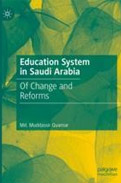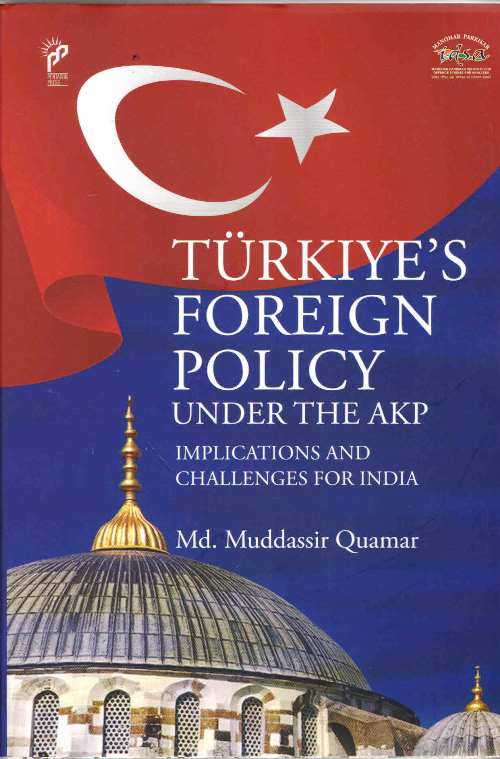Md. Muddassir Quamar
He worked at Manohar Parrikar Institute for Defence Studies and Analyses from 2016 to 2023
Publication
Education System in Saudi Arabia: Of Change and Reforms
- Publisher: Palgrave Macmillan
- ISBN: 978-981-15-9172-3,
- Price: 84,99 €
- Md. Muddassir Quamar |
- 2021 |
Türkiye’s Foreign Policy Under The AKP: Implications and Challenges for India
- Publisher: Pentagon Press
- ISBN: 9788195189427 ,
- Price: ? 995/-
- E-copy available
- Md. Muddassir Quamar |
- 2023 |
Erdogan’s Turkey: Politics, Populism and Democratisation Dilemmas
The nearly two decades of Adalet ve Kalkinma Partisi (AKP; Justice and Development Party) rule has raised a number of questions on the advancement or reversal of democratisation in Turkey. Besides the partisan debate on increasing authoritarian behaviour of Erdogan, there have been limited attempts to comprehensively examine the way AKP has shaped the Turkish politics in the context of the democratisation debate.
- Md. Muddassir Quamar |
- 2020 |
India’s Saudi Policy: Bridge to the Future
- Publisher: Palgrave Macmillan
- E-book ISBN: 978-981-13-0794-2, Hardcopy ISBN: 978-981-13-0793-5,
- Price: E-book - E-book - $84.99, Hardcopy - $109.99
- P. R. Kumaraswamy, Md. Muddassir Quamar |
- 2018 |
Changing Security Paradigm in West Asia: Regional and International Responses
- Publisher: KW Publishers
- ISBN: 978-93-89137-59-0 ,
- Price: ?.1280/-
- E-copy available
- Meena Singh Roy, Md. Muddassir Quamar |
- 2020 |
A Ray of Hope for Saudi-Iran Thaw
Associate Fellow, Manohar Parrikar IDSA, Md Muddassir Quamar’s commentary ‘A Ray of Hope for Saudi-Iran Thaw’ has been published in ‘Financial Express’ on 13 March 2023.
The commentary underlines the significance of the Saudi-Iran-China trilateral statement issued in Beijing on 10 March and analyses its geopolitical significance.
Two to Tango: Xi Jinping’s Visit to Riyadh
Xi’s visit to Riyadh builds on the strong economic engagements between China and Saudi Arabia.
- Md. Muddassir Quamar |
- January 05, 2023 |
Socio-Economic Change in Saudi Arabia and Opportunities for Strengthening Indo-Saudi Relations
Associate Fellow, Manohar Parrikar IDSA, Dr Md. Muddassir Quamar’s article, ‘Socio-Economic Change in Saudi Arabia and Opportunities for Strengthening Indo-Saudi Relations’, has been published by Financial Express on 23 November 2022.
The article underlines that the simultaneous transformations of bilateral ties and the humongous socio-economic transition inside the Kingdom are creating newer opportunities to take the bilateral relationship to a new level. The sky is the limit when it comes to the potentials and it is high time for Indian trade and industry bodies to take note and act.
Read Complete Article
China’s Growing Strategic Inroads in the Middle East and Challenges for India
Associate Fellow, Manohar Parrikar IDSA, Dr Md Muddassir Quamar’s commentary on ‘China’s Growing Strategic Inroads in the Middle East and Challenges for India’, has been published by Raksha Anirveda on 23 November 2022.
The commentary underlines China's emergence as a strategic challenge for India and Indian interests in the MENA region considering China’s growing strategic foothold in the region. It argues, India needs to recalibrate its strategy in the MENA region to counter this emerging challenges effectively.










